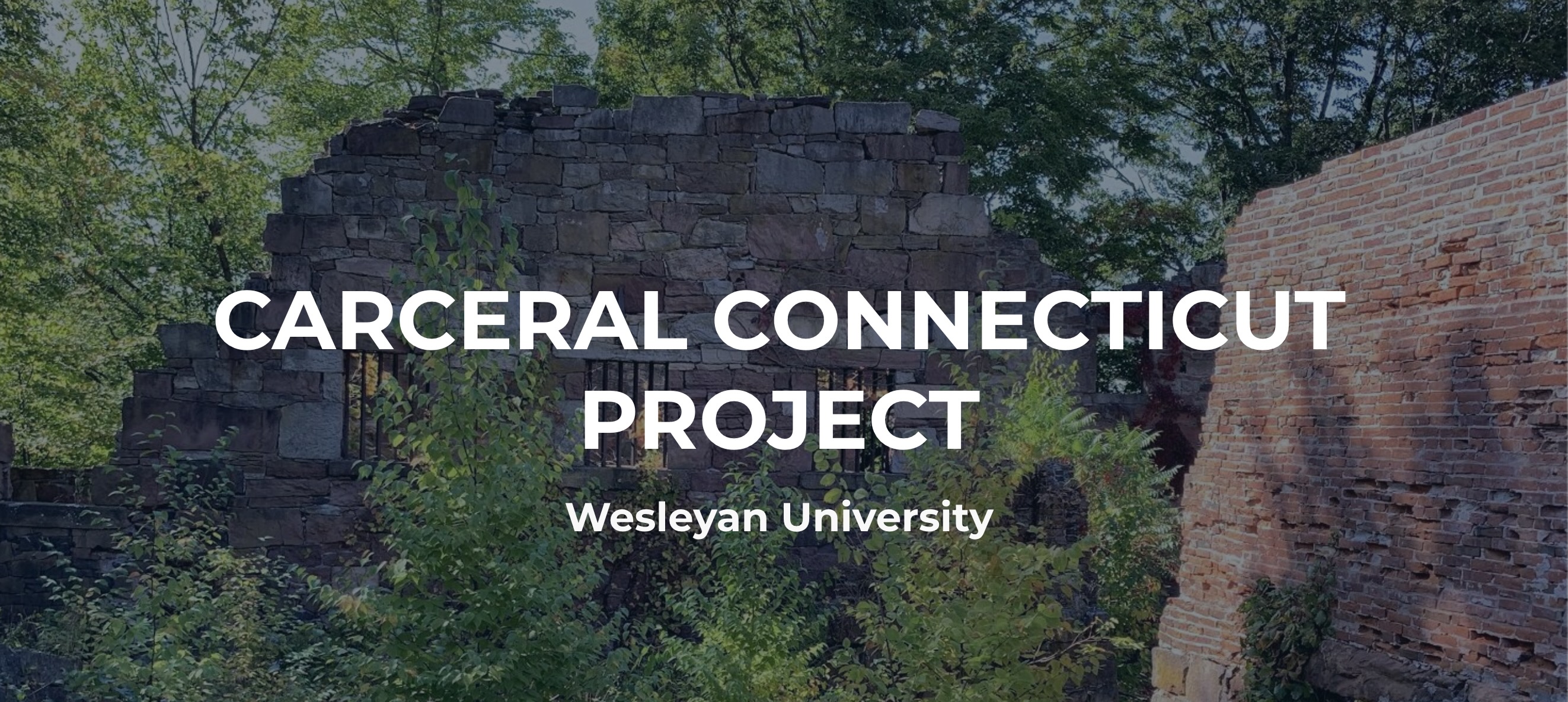
carceralconnecticut.com
Looking over the Connecticut River just a few blocks away from the University’s campus, one sees a quintessential Connecticut scene. Only a few birds and boats disturb the stillness of the water and the surrounding banks. Not too long ago, however, this same river and the valley surrounding it was a hotspot of weapons manufacturing in the United States. The area used to be filled with bustling 18th century armories that left questionable legacies—the guns produced here spread their way across the continent, some being sent to quell a revolution in Haiti while others were bought by the U.S. Army to fight Native Americans or were sent to South Carolina and rebranded for the Confederacy.
This is one of many topics being investigated by the Carceral Connecticut Project (CCP), a three-year undertaking at the University which aims to foster a deeper understanding of the history of race, capitalism, and violence in the Connecticut River Valley.
The project is led by four Wesleyan faculty members: Dean of the Social Sciences Demetrius Eudell, Professor of Government Sonali Chakravarti, Associate Professor of History and Science in Society Jennifer Tucker, and Assistant Professor of the Practice in African American Studies and Director of the Middlesex County Historical Society (MCHS) Jesse Nasta.
“We’re trying to look at what we’re calling a history of the present,” Nasta said. “Race, capitalism, and violence are sort of everything and everywhere, and kind of the foundation of the modern world. So it’s an expansive project.”
A distinguishing element of the project is its spatial approach to research. Rather than handling the themes of the project on a national or global scale, the CCP focuses on topics through the specific lens of the Connecticut River Valley, allowing for a more direct interaction between the University and the Middletown community, as well as more in-depth research in the geographical area.
“I think there’s just more of a connection to the story,” Chakravarti said. “There’s a sense of standing on the same street and the area where these things happened, and so it feels alive in that way. Knowing one thing deeply allows you to also understand other things. Going deep into Connecticut allows us to think about how other communities dealt with [problems of race and violence].”
The CCP launched thanks to funding from a three-year, $1 million grant from the Mellon Foundation, an organization that endeavors to increase student and public interest in the humanities through new, innovative methods.
“There is a big teaching component and a big public-facing component to the project as part of this grant,” Nasta said.
On top of the research done by the faculty leading the project, there will be classes taught at the University, opportunities for summer research for student fellows, various public events, and a commissioned documentary that will explore the process of building nations in conjunction with the large role of prisons in the region, per the CCP’s website.
“One way that the project sort of gives back to the Wesleyan community is that there are a bunch of thematic courses looking at race, industry, and violence in the Connecticut River Valley,” Nasta said. “Some of it will be through public exhibition. There’s going to be an exhibit on the history of guns; I’m looking at a history exhibit on race and redevelopment in Middletown, meaning the building of the highway and the [displacement] of residents downtown in the 50s, 60s, and 70s.”

c/o Danny DaCosta ’24
As a part of the Project, Eudell will be offering an upper-level seminar on policing in the United States while Tucker will teach three courses: “Visual Methods across the Humanities and Social Sciences”; “Reenacting Justice: Guns in America” (a documentary performance course); and “Guns and Society.” Additionally, Chakravarti will teach two courses: “Citizens, Judges, Juries: Who Decides in Democracy?” and “Theorizing the City.” Finally, Nasta will teach three courses: “Race and Slavery in New England”; “The Prison State: Race, Law and Mass Incarceration”; and “Carceral Connecticut.”
Several of these courses will encourage interaction with the surrounding community, from conducting research using the archives of the MCHS in Nasta’s courses to creating an exhibition on weapons, society, and culture in Tucker’s “Guns and Society” class.
Over the summer, the project hosted its first student fellow research group, with 12 students spending six weeks in Middletown and conducting researching alongside faculty advisors. Their work included creating an oral archive of jurors talking about the experience of being on a jury, alongside comparative research on the legal systems in the US, Argentina, and India. Students also attended workshops and seminars, such as an op-ed writing workshop taught by Chakravarti.
In addition to the aforementioned classes and research, the CCP will hold large conference on law and social thought, currently slated to take place in the spring of 2024. The conference is set to include scholars from institutions throughout New England, as well as a keynote speech that will be open to the entire Wesleyan community.
From exhibitions to classes, the CCP is a complex, wide-ranging project that aims to have a significant impact and body of work by the time the three-year grant is over. However, the founders hope that their work with the project will carry longevity within the community.
“Because there’s such a digital component, our goal is for this to live on indefinitely, digitally; digital versions of our exhibits, digital versions of the material we’re gathering, so that there is also a permanent online resource and a permanent online repository to give this a longer life beyond the two or three years,” Nasta said.
Leo Bader can be reached at lbader@wesleyan.edu.